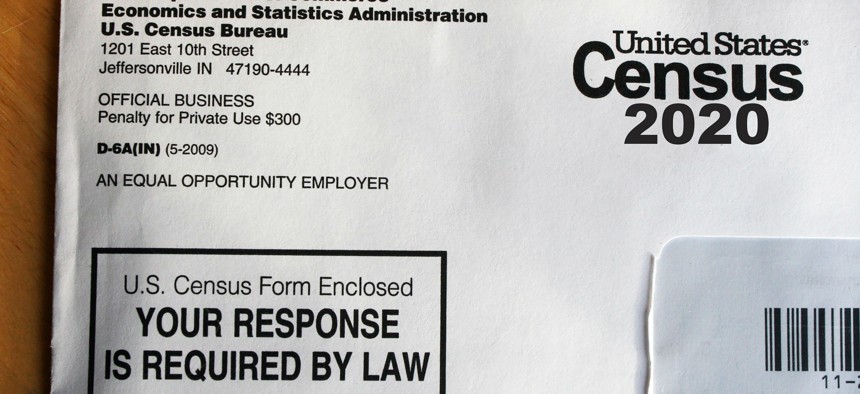
Wild 2 Free/Shutterstock.com
Census Eclipses 500K Applicants, Still Needs 2.3M More
The bureau is working to overcome fears instilled by the Trump administration's court fight to include a citizenship question, official says.
The U.S. Census Bureau is exceeding its recruiting goals as it prepares to launch the decennial count, though it is facing some challenges to hire and train employees as it seeks 2.3 million more applicants.
The bureau has already received more than 500,000 applicants, Tim Olson, Census’ associate director for field operations, said at an event in Las Vegas this week. That recruiting effort was to fill jobs for address canvassing, a process that enables Census to verify the type and location of every household in the country. Census only needed 200,000 applicants to fill the 50,000-60,000 jobs the canvassing required, Olson said, but all the applicants will remain in the bureau’s database as it hires enumerators for next year’s count.
Census needs to hire 500,000 people next year for jobs that will pay between $13.50 and $30 an hour. The bureau plans to start its major recruiting drive in October, Olson said, and will seek 2.3 million applicants. Census will launch an advertising campaign for the hiring at both a national and local level. It has already hired 5,000 recruiters throughout the country to solicit applicants, he said.
A Government Accountability Office report released on Friday found Census is exceeding its recruiting and hiring goals, but faces potential risks going forward and could improve its training efforts. The bureau is looking to onboard fewer employees than it did for the 2010 count, because for the first time it is directing household to fill out their forms online. It fielded 3.9 million applications in 2010 and ultimately hired 628,000 temporary employees. The assumption that Census would need fewer employees in 2020 was backed up during the bureau’s trial run last year, officials said.
While Census has so far not faced issues finding applicants, it will be up against some headwinds it did not face 10 years ago.
“Making these efforts even more difficult are external factors beyond the Bureau’s control, such as the low unemployment rate, which can make it harder to recruit,” GAO said. As a result, some locations have reported difficulty in competing for talent with the private sector and are seeking adjustments from the bureau’s headquarters to be able to offer more competitive pay.
Census is also facing longer-than-expected wait times for background checks, the auditors found, causing a backlog for applicants. Temporary workers have helped move them through the screening more quickly and the bureau is prioritizing positions for clearance.
As in previous counts, Census will use special authorities to recruit current and former federal employees to work as enumerators: it will allow federal retirees to take the temporary work without affecting their benefits and enable current employees to accept positions without impacting their job status or salary. The bureau already has “dual employment agreements” with 28 federal agencies, though that lags behind the 81 agreements it reached in 2010.
Unlike in 2010, Census will couple in-person and instructor-led training with computer-based training. The approach grew out of lessons learned from previous enumerations, GAO said, and is intended to standardize training, allow for quick changes and provide for automated assessment. GAO faulted the bureau for not fully testing all of its online training and failing to set goals to measure what successful training looks like.
The auditors gave Census mostly positive marks on securing its office space, having signed leases for 247 of its 248 offices. It has missed some of its construction and renovation deadlines, however.
While Olson maintained Census is on schedule and meeting its goals, he conceded some of the bureau’s efforts could be disrupted by the recent dispute between the Trump administration and congressional Democrats, an array of outside groups and the courts about whether the enumeration would include a citizenship question. President Trump eventually dropped his push to include the question, but his high-profile fight has made an impact on immigrant and other communities, Olson said.
He stressed that the information collected by Census cannot be shared with law enforcement, including Immigration and Customs Enforcement, the FBI or Internal Revenue Service.
“We cannot share it with anybody outside of the bureau,” he told county officials at the National Association of Counties annual conference. “Put out the message that it’s safe. Because people are afraid.”
He expressed confidence that the bureau’s hires will receive sufficient training to ensure everyone is counted in the census.
“The people we will hire,” Olson said, “they are fabulous, they are loving, they are caring, they are brilliant.”
Bill Lucia contributed to this report.







